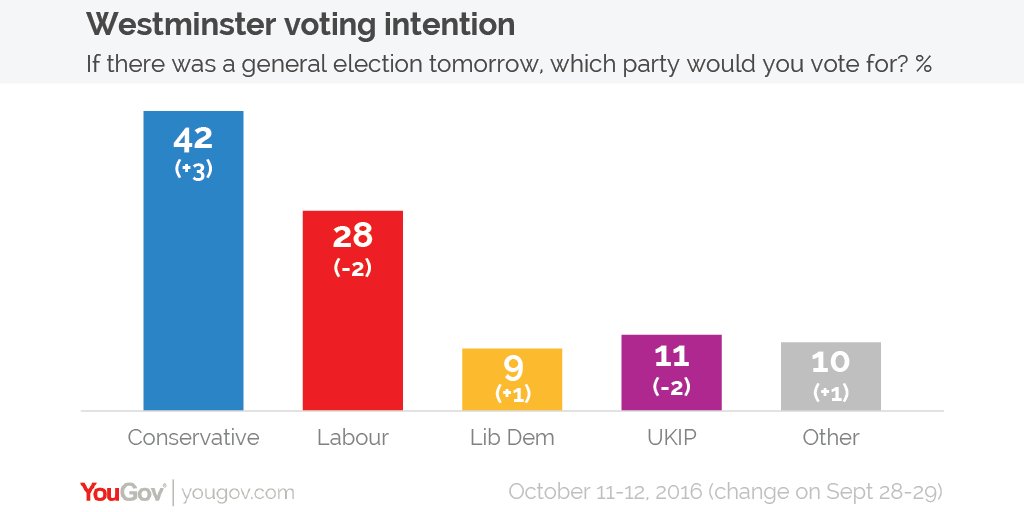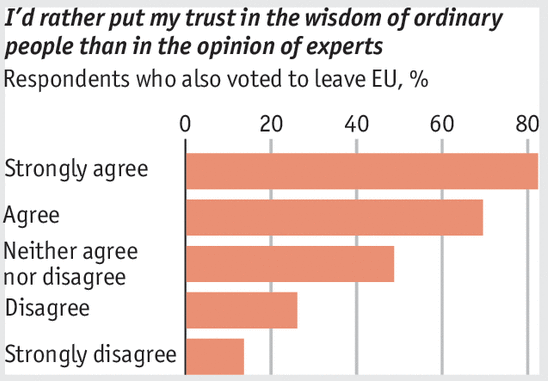Royal_Phalanx
Member
https://twitter.com/YouGov/status/786852839968636928

Paints a thoroughly depressing picture of politics in this country today.
In addition, the Economist says 6% of Brexit voters regret their vote, with the amount of people regretting it increasing when their perceptions of Leave's chances of winning were lower.

http://www.economist.com/blogs/graphicdetail/2016/10/daily-chart-6

Paints a thoroughly depressing picture of politics in this country today.
In addition, the Economist says 6% of Brexit voters regret their vote, with the amount of people regretting it increasing when their perceptions of Leave's chances of winning were lower.

WHEN Michael Gove, as justice secretary, was campaigning for Vote Leave ahead of the European Union referendum on June 23rd, he claimed that the people of Britain had “had enough of experts”, referring to the long list of countries and organisations that had warned that Britain would be better off remaining in the EU. New analysis from the British Election Study, polling more than 10,000 voters, has found that Mr Gove was partially right, at least among his supporters. Those who voted to Leave typically preferred the wisdom of ordinary people to that of experts.
With a victory for gut feelings over hard facts, the triumphant Leave side has told those who chose Remain to stop complaining about the Brexit result: their victory was slim, but it was a victory. However, those who opted to Leave have stronger feelings of remorse about their vote. Whereas only 1% of Remainers regret their choice, 6% of Leavers do (a further 4% are undecided, compared with 1% of Remain voters). That would have been enough to have changed the outcome of the referendum to a win for Remain. The theory that many Leavers voted as a protest against the political elite, as well as experts, gets more credibility from the study. Leaver remorse is strongest among those who didn’t expect their side to win: one in ten of them regret their vote.
One of the many significant obstacles facing the politicians who must now negotiate Britain’s new place in the world is trade. As part of the EU, Britain has trade agreements in place with more than 50 countries. New agreements cannot start being negotiated until two years after Article 50 is triggered (the legal means by which a country leaves the union). Striking new trade deals is a notoriously slow process and the terms eventually agreed are likely to be less favourable to Britain than those it enjoys through its membership of the EU, the biggest trading block in the world. With a complicated road to Brexit ahead, the “Bregret” among Leavers may grow as the realities of their choice become clearer.
http://www.economist.com/blogs/graphicdetail/2016/10/daily-chart-6


